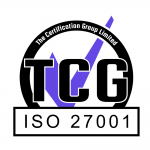Where is your office?
Since the pandemic, there have been many requests for flexible office solutions. This paradigm shift in how we work has reshaped the traditional office landscape, opting for more businesses, no matter the size, to seek more adaptable workspace options. This is the new future of work dynamics, but why are flexible office solutions in such high demand?
Remote work
The COVID-19 pandemic pushed companies worldwide to start remote working if possible and to embrace flexible working arrangements pretty much overnight. This started as only a temporary fix but ended up becoming a permanent fixture for many companies. Many employees discovered that they had benefitted from working from home. Some found that their productivity increased, and others found it easier to have a better work-life balance. There were also many employees who found they had reduced commuting stress too. Ultimately, these increased employees’ demand for flexible office solutions, and companies began reevaluating their strategies to accompany them.
Flexibility
Employees in today’s work styles and preferences want flexibility. It’s become almost an essential cornerstone of modern work culture. Flexible office solutions also benefit businesses because they allow the agility and scalability necessary to meet the changing needs of businesses, which allows them to scale up or down without being tied to any long-term leases or hefty overhead costs. Having these options has created a sense of freedom and versatility that traditional offices lack.
Shifting business dynamics
A traditional 9-5 job is increasingly becoming outdated as businesses adapt to the changing market dynamics and customer demands. Many startup companies, freelancers and small businesses thrive in environments that encourage collaboration, innovation and networking opportunities. Flexible office solutions cater to these needs by providing a dynamic ecosystem which allows professionals from diverse backgrounds to interact, share ideas, and collaborate on projects. These spaces should offer high-speed internet, communal areas, and meeting rooms to enhance productivity and creativity further.
Cost-effectiveness
For many businesses, cost-effectiveness is crucial to the need for flexible office solutions. Renting traditional office space can be very expensive, especially for startup companies and small businesses operating on tight budgets. Flexible arrangements, on the other hand, offer a more affordable alternative, allowing companies to allocate their resources more efficiently. By paying only for the space and services they need, businesses can significantly reduce their overhead costs and reinvest the savings into other areas of their operations.
Hybrid work models
As we navigate towards a post-pandemic future, hybrid work models are gaining traction, combining the best aspects of remote work and office-based collaboration. Flexible office solutions are important in supporting these hybrid arrangements by providing a workspace where employees can go for meetings, brainstorming sessions, and team-building activities. This hybrid approach fosters a sense of belonging and promotes work-life balance by offering the flexibility to choose when and where to work.
In conclusion, the surge in demand for flexible office solutions reflects the changing dynamics of the modern workplace. As remote work, flexible schedules, and hybrid models become the new normal, businesses must adapt to meet the always-changing needs of their workforce and remain competitive. Flexible office solutions offer a viable alternative to traditional office setups, providing the agility, cost-effectiveness, and change required to thrive in today’s dynamic business environment. By embracing this shift towards flexibility, companies can potentially create new opportunities for growth, innovation, and success in the years to come.




